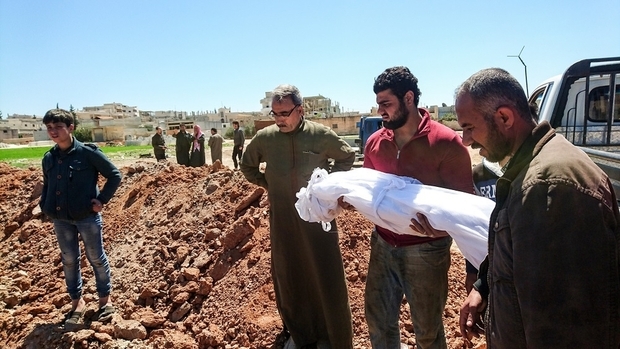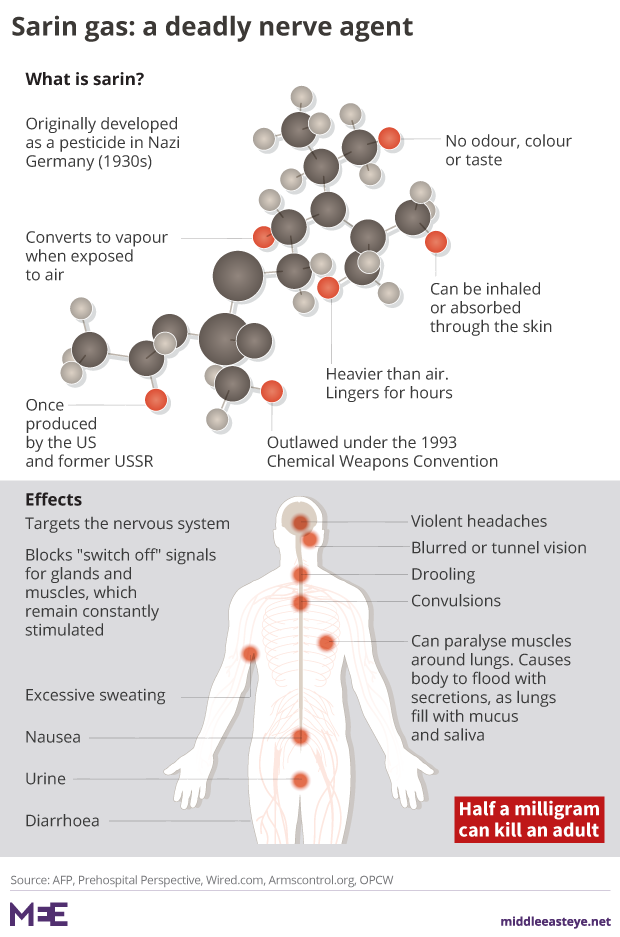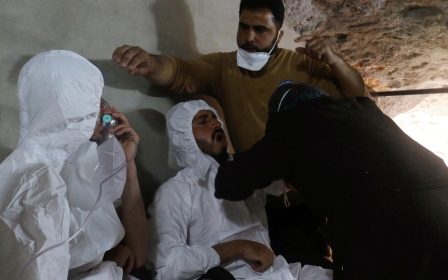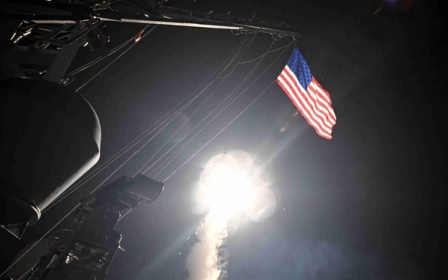Russia casts UN veto for 11th time to block Syria gas attacks probe

Russia vetoed on Friday a Japanese-drafted U.N. Security Council resolution to extend by one month an international inquiry into who is to blame for chemical weapons attacks in Syria, just a day after Moscow blocked a US push to renew the investigation.
The mandate for the joint inquiry by the UN and the Organisation for the Prohibition of Chemical Weapons (OPCW), which was unanimously created by the 15-member Security Council in 2015, ends on Friday.
Syrian ally Russia has now cast 11 vetoes on possible Security Council action on Syria since the country's civil war began in 2011. The Japanese draft received 12 votes in favor, while China abstained and Bolivia joined Russia in voting no.
A resolution needs nine votes in favor and no vetoes by the United States, France, Russia, Britain or China to be adopted.
Russia cast its 10th veto on Thursday to block United Nations Security Council action against Syria since the war began in 2011, to halt a US-drafted resolution to renew an international inquiry into who is to blame for chemical weapons attacks in Syria.
After Moscow vetoed the US draft resolution, a Russian-drafted measure failed to garner the nine votes required for adoption.
Addressing the council, US Ambassador Nikki Haley assailed the veto as a "deep blow," saying "Russia has killed the investigative mechanism which has overwhelming support of this council."
"By eliminating our ability to identify the attackers, Russia has undermined our ability to deter future attacks."
"The message to anyone listening is clear: in effect, Russia accepts the use of chemical weapons in Syria," she said.
The resolution needed nine votes in favour and no vetoes by the United States, France, Russia, Britain or China to be adopted. The US draft received 12 votes in favour and abstentions by China and Egypt.
Haley told reporters before the vote that she had been unable to speak to her Russian counterpart Vassily Nebenzia this week about the inquiry's renewal. She said the United States had amended its draft several times in a bid to win Russian support for the measure.
"For some reason the phones at the Russian mission aren't working. We have tried to get a call with them and they've been too busy to talk to us this week and when I have tried to call Vassily for some reason he's not available," Haley said.
Ahead of the council vote, US President Donald Trump on Thursday urged the UN Security Council to renew the inquiry, saying it was needed to prevent Syrian President Bashar al-Assad from using chemical weapons.
"Need all on the UN Security Council to vote to renew the Joint Investigative Mechanism for Syria to ensure that Assad regime does not commit mass murder with chemical weapons ever again," Trump said in a note on Twitter.
While Russia agreed to the 2015 creation of the JIM, it has consistently questioned its findings, which also concluded that the Syrian government used chlorine as a weapon several times.
Russia has now vetoed 10 resolutions on Syria since the conflict started in 2011, including blocking an initial US bid on 24 October to renew the JIM, saying it wanted to wait for the release two days later of the inquiry's report, which subsequently blamed the sarin gas attack on the Syrian government.
Syria agreed to destroy its chemical weapons in 2013 under a deal brokered by Russia and the United States, following an attack near Damascus that killed hundreds of civilians.
New MEE newsletter: Jerusalem Dispatch
Sign up to get the latest insights and analysis on Israel-Palestine, alongside Turkey Unpacked and other MEE newsletters
Middle East Eye delivers independent and unrivalled coverage and analysis of the Middle East, North Africa and beyond. To learn more about republishing this content and the associated fees, please fill out this form. More about MEE can be found here.




